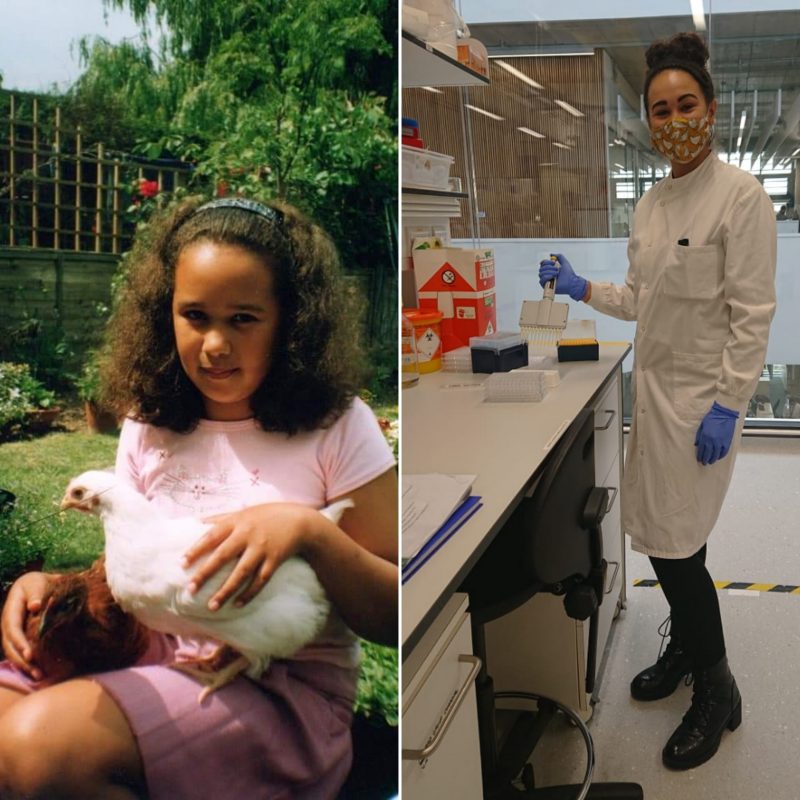Challenging Race in Zoology
Bushra Abu-Helil, BAME Ecological Network Vice-Chair
Having kept chickens for longer than I can remember, I have always considered them my ‘gateway’ animal into natural sciences. Borrowing an old incubator off a friend, throughout high school I would hatch chickens and peacocks in my mum’s kitchen. These experiences led me to my current position as a second year PhD zoology student focused on poultry health and welfare.
I was always known as the animal lover; once during school someone tapped me on the shoulder in the corridor between classes to hand over his backpack with a cockatiel he had just found wandering the train station, knowing I would be best to handle it.
Growing up in rural Essex, and being one of very few people of colour in the area, I developed a resilience to fitting a mould not built for me. Then at university, there was only one other person of colour on BSc Zoology and I soon came to realise the value of diversity. Having an alternative background to the majority brings exciting new perspectives that may have never been considered! I now try and use these perspectives to make ecology and academia more inclusive.
When I encounter obstacles in my own life, I want to ensure that they will not be a barrier to those who come after me. Once while visiting a research site with high biosecurity, I had not been informed that I would be required to wash my hair, which was braided at the time. I therefore missed out on an opportunity. Nobody had considered providing this information prior to leaving me in a position where I felt that I had caused some form of disappointment, just because of my hair style. As a black woman, it is common for me to start a new position with a fresh new ‘do, ready to impress and giving me confidence. Since the experience, I have been reluctant to have my hair braided in case the situation arises in the future. I have made this alteration to my lifestyle, I wonder if any alterations were made by the company?
Talent is evenly distributed whereas opportunity is not.
Identifying these barriers is essential.

The BAME Ecologist Network, supported by the British Ecological Society, commenced at the end of 2020 gaining momentum from the Black Lives Matter movement over the summer. Sharing our personal journeys of how we got into our areas of science highlighted the shared inequalities we face as academics, professionals and nature enthusiasts. These matters are always at the forefront of our conversation. We benefit from sharing these experiences to others so that they better understand and facilitate a more inclusive environment for their colleagues, students and peers. Being with fellow animal lovers of colour is empowering and I am excited to see how we progress to create a diverse future in British ecology and animal sciences.
Challenging racism in zoology and ecology begins with identifying the barriers that we face and then acting to remove them. By opening the discussion in a safe space and creating the BAME Ecologist Network, we are beginning to challenge racial disparities in animal sciences. The BAME Ecologist Network is open to anyone who identifies as BAME and has an interested in ecology. Whether you are a new zoology undergraduate or a plant enthusiast at home, we support people of colour in nature and be sure their voice is heard.
If you are interested in joining the BAME Ecologist Network, contact Karen Devine Head of External Affairs for the British Ecological Society ([email protected]).
To connect with the author, Bushra Abu-Helil, head over to Twitter: @bushyb94